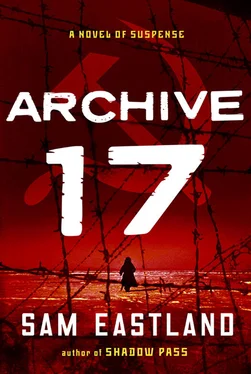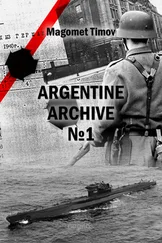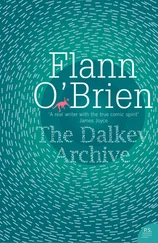Sam Eastland - Archive 17
Здесь есть возможность читать онлайн «Sam Eastland - Archive 17» весь текст электронной книги совершенно бесплатно (целиком полную версию без сокращений). В некоторых случаях можно слушать аудио, скачать через торрент в формате fb2 и присутствует краткое содержание. Жанр: Исторический детектив, на английском языке. Описание произведения, (предисловие) а так же отзывы посетителей доступны на портале библиотеки ЛибКат.
- Название:Archive 17
- Автор:
- Жанр:
- Год:неизвестен
- ISBN:нет данных
- Рейтинг книги:3 / 5. Голосов: 1
-
Избранное:Добавить в избранное
- Отзывы:
-
Ваша оценка:
- 60
- 1
- 2
- 3
- 4
- 5
Archive 17: краткое содержание, описание и аннотация
Предлагаем к чтению аннотацию, описание, краткое содержание или предисловие (зависит от того, что написал сам автор книги «Archive 17»). Если вы не нашли необходимую информацию о книге — напишите в комментариях, мы постараемся отыскать её.
Archive 17 — читать онлайн бесплатно полную книгу (весь текст) целиком
Ниже представлен текст книги, разбитый по страницам. Система сохранения места последней прочитанной страницы, позволяет с удобством читать онлайн бесплатно книгу «Archive 17», без необходимости каждый раз заново искать на чём Вы остановились. Поставьте закладку, и сможете в любой момент перейти на страницу, на которой закончили чтение.
Интервал:
Закладка:
“Bury him,” ordered Kolchak.
“Yes, Colonel.” Lavrenov set his foot against Savushkin’s chest, and wrenched out the pickax blade.
Kolchak turned to Pekkala. “Go now,” he said gently, “before anyone notices you’ve been gone. And do not worry, my friend. It is all in motion now.”
“Kornfeld says the target has been liquidated.”
Without looking up from his paperwork, Stalin grunted in acknowledgment.
“There is something else, Comrade Stalin-a new development at Borodok.”
The paper shuffling came to an abrupt halt.
“Another telegram has arrived,” continued Poskrebyshev.
“From Kirov or Pekkala?”
“Neither. It’s from Camp Commandant Klenovkin, and addressed to you, Comrade Stalin.” Poskrebyshev handed over the message.
BEG TO REPORT INSPECTOR PEKKALA OVERHEARD DENOUNCING COMMUNIST PARTY AND MAKING THREATS AGAINST COMRADE STALIN STOP BELIEVE PEKKALA PLANNING UPRISING IN CAMP STOP HAS FALSELY ACCUSED ME OF INVOLVEMENT IN CRIME STOP LONG LIVE THE PARTY STOP LONG LIVE COMRADE STALIN STOP KLENOVKIN COMMANDANT BORODOK
Stalin sat back heavily in his chair. “Denouncing me? An uprising?”
“Has this been confirmed?” asked Poskrebyshev.
“There is no time to waste on confirmations,” Stalin snapped. “The prisoners will flock to him. The uprising could spread to other camps. If Pekkala isn’t stopped, this could turn into a national emergency.” He sat forward, wrote something on a pad of yellow note paper, and handed the note to Poskrebyshev. “Send this to Klenovkin. Tell him to carry out the order and to report back to me immediately afterwards.”
Poskrebyshev blinked in surprise when he saw what Stalin had written. “Do you not wish to verify the camp commandant’s message before such drastic action is taken?”
“What reason could this man Klenovkin have for sending me a pack of lies?”
“And what could Pekkala possibly have to gain by turning on you now?”
“More than you know! More than you could possibly realize!” With wild eyes, Stalin glared at Poskrebyshev. “Now send the message, and when I want your opinion, I’ll ask for it.”
Poskrebyshev lowered his head in surrender, as if it was his own doom and not Pekkala’s which had just been sealed. “Yes, Comrade Stalin,” he whispered.
When Poskrebyshev had gone, Stalin walked to the window. He lit himself a cigarette and looked out over the city. As smoke flooded into his lungs, smoothing out the ragged edges of his mind, the memory of Pekkala was already fading from his thoughts.
Eversince sending the telegram detailing Pekkala’s nonexistent threats against Stalin, Klenovkin had been poised over the telegraph, waiting for a reply. He waited for so long that he had dozed off. When the device finally sprang to life, the commandant was so startled that he backed away from it as if a growling dog had crept into the room.
As soon as Klenovkin read the telegram, he sent for Gramotin.
While he waited, Klenovkin paced around his study, rubbing his hands together in satisfaction. For the first time in as long as he could remember, something was going his way. This would, he knew, be the springboard to greater things. The meteoric rise he had always imagined he would make through the ranks of the Dalstroy Company had finally begun.
At last Gramotin appeared.
“Read this.”
“Liq …” The telegram trembled between Gramotin’s fingers as he struggled to pronounce the words. “Liquiday. Liquidate.”
“Idiot!” Klenovkin snatched the message back and read it out himself. “Now,” he said when he had finished, “do you understand what must be done?”
“Yes, Comrade Klenovkin. First thing in the morning?”
Klenovkin paused. “On second thought, wait until he has finished his breakfast duties.”
“So we can keep him working to the very end.”
“My thoughts, exactly, Sergeant.”
Gramotin nodded, impressed. “Dalstroy will be proud of you.”
“Indeed they will,” agreed Klenovkin, “and it’s about time, too.”
The Old Guard, Larchenko, sat in his chair by the door, chin on his chest, snoring. His rifle stood propped against the wall.
Nearby, Pekkala lay in his bunk, haunted by the death of Savushkin. He inhaled the musty, used-up air of dreaming men and listened to the patient rhythm of their breathing.
Unable to sleep, Pekkala climbed out of his bunk and walked over to the window. His felt boots made no sound as they glided across the worn floorboards. With the heel of his palm, he rubbed away the frost that had gathered on the inside of the glass.
Soon it would be dawn.
Pekkala had made up his mind to lie low when the breakout began. As Kolchak had said, they would not wait for him if he was delayed in the confusion.
There had been no time to reflect upon his brief meeting with the colonel. He continued to be baffled by the colonel’s choice to return, in spite of the overwhelming risks involved. At the same time, Pekkala felt a surge of guilt that his own faith in this man had not matched that of the soldiers he had left behind in Siberia. Pekkala was glad that the magnitude of the Comitati’s endurance would at last be repaid with their freedom.
And as for Stalin, he decided, the payment for his treachery would be the knowledge that Kolchak had slipped from his grasp yet again, along with the last of the Imperial gold reserves. When the time came, Pekkala decided, he would simply deny that he had known anything about Kolchak’s plans.
Although Pekkala had solved the murder of Ryabov, it troubled him that he had never learned the motive for Ryabov’s betrayal of the colonel. He realized now that he might never know. Whatever Ryabov’s purpose, he had taken his reasons to the grave.
With shark-gray clouds hanging on the red horizon, Pekkala made his way over to the kitchen as usual in order to prepare the breakfast. The oven was on and the bread was baking inside. Melekov was nowhere to be seen. He often went back to his quarters for an extra half hour of sleep, leaving to Pekkala the job of removing the loaves just before the kitchen opened for breakfast. It was so quiet out on the compound that Pekkala began to wonder if the escape had already taken place. When the bread was done, Pekkala took the pans from the oven and tipped the paika rations out into the battered aluminum tubs from which they would be served.
He had just completed this task when Melekov burst into the kitchen. “You have to get out of here!” he hissed. “They’re going to kill you.”
“Who is?” demanded Pekkala.
“On Klenovkin’s orders, you are to be shot as soon as the prisoners have gone to work this morning.”
Pekkala wondered if Klenovkin had found out about the escape. If that was true, he would not be the only one to die. “Who told you this?”
“Gramotin did. Only a few minutes ago.”
“Damn it, Melekov! Did you not stop to wonder if this might just be another of his lies?”
“He said that orders had come in from Moscow last night. Klenovkin even showed him the telegram. Stalin himself wants you dead!”
Pekkala’s mind was racing. If Stalin had indeed ordered the execution, his only hope of survival would be to escape with the Comitati. Even if the telegram was just a story concocted by Gramotin, Pekkala knew he would be dead before the lie had been discovered. It took him only a second to realize he had no choice except to run.
“Why are you telling me this?” he asked Melekov. “If what you say is true, do you realize what your life would be worth if they found out I’d heard it from you?”
“You could have killed me, that day in the kitchen. Maybe you should have, but you didn’t. I pay my debts, Pekkala, and this one is paid. Now move quickly. I know a place where you can hide.” The cook beckoned for Pekkala to follow, spun around and found himself face-to-face with Tarnowski, who had appeared in the doorway to the kitchen.
Читать дальшеИнтервал:
Закладка:
Похожие книги на «Archive 17»
Представляем Вашему вниманию похожие книги на «Archive 17» списком для выбора. Мы отобрали схожую по названию и смыслу литературу в надежде предоставить читателям больше вариантов отыскать новые, интересные, ещё непрочитанные произведения.
Обсуждение, отзывы о книге «Archive 17» и просто собственные мнения читателей. Оставьте ваши комментарии, напишите, что Вы думаете о произведении, его смысле или главных героях. Укажите что конкретно понравилось, а что нет, и почему Вы так считаете.











